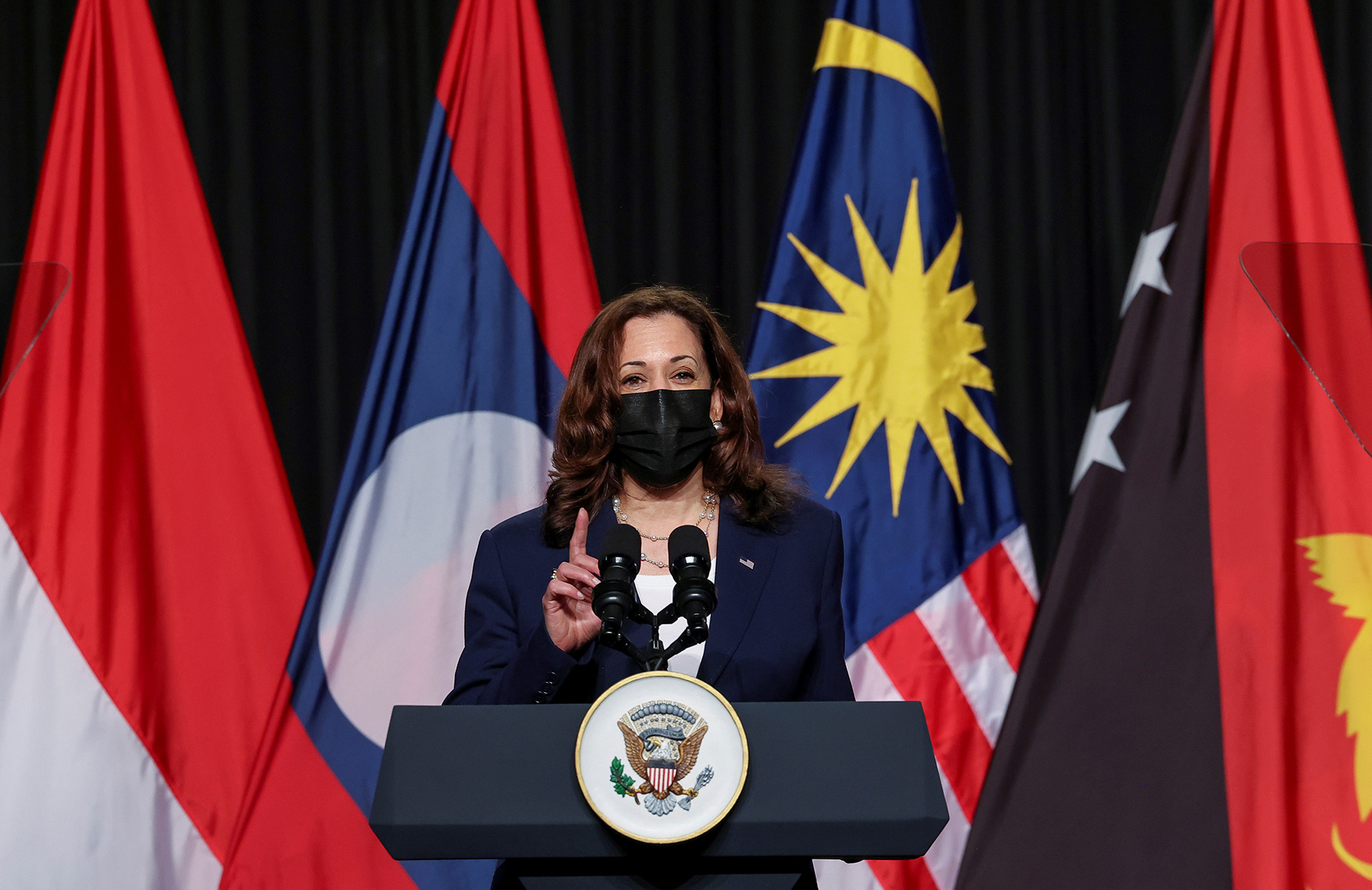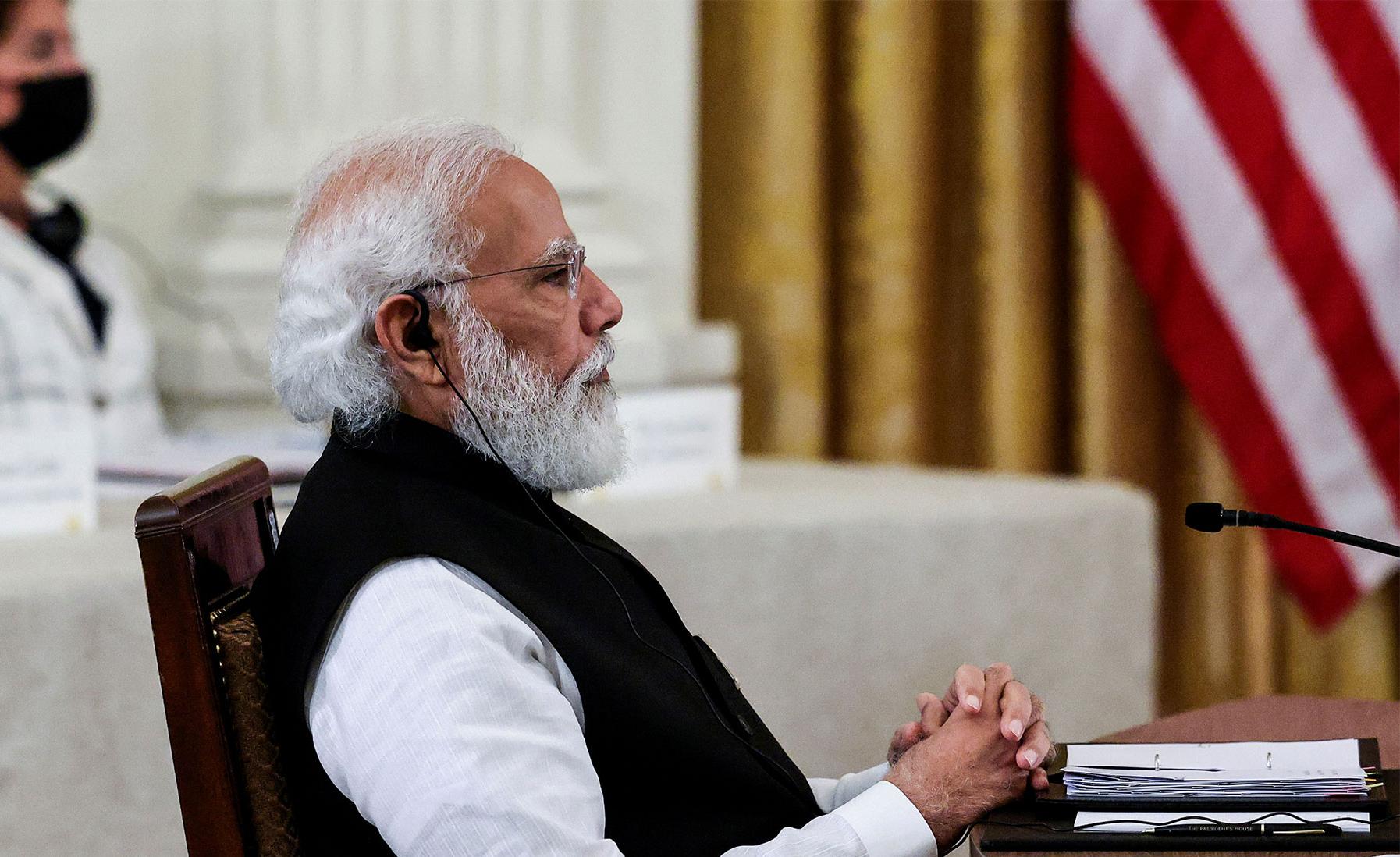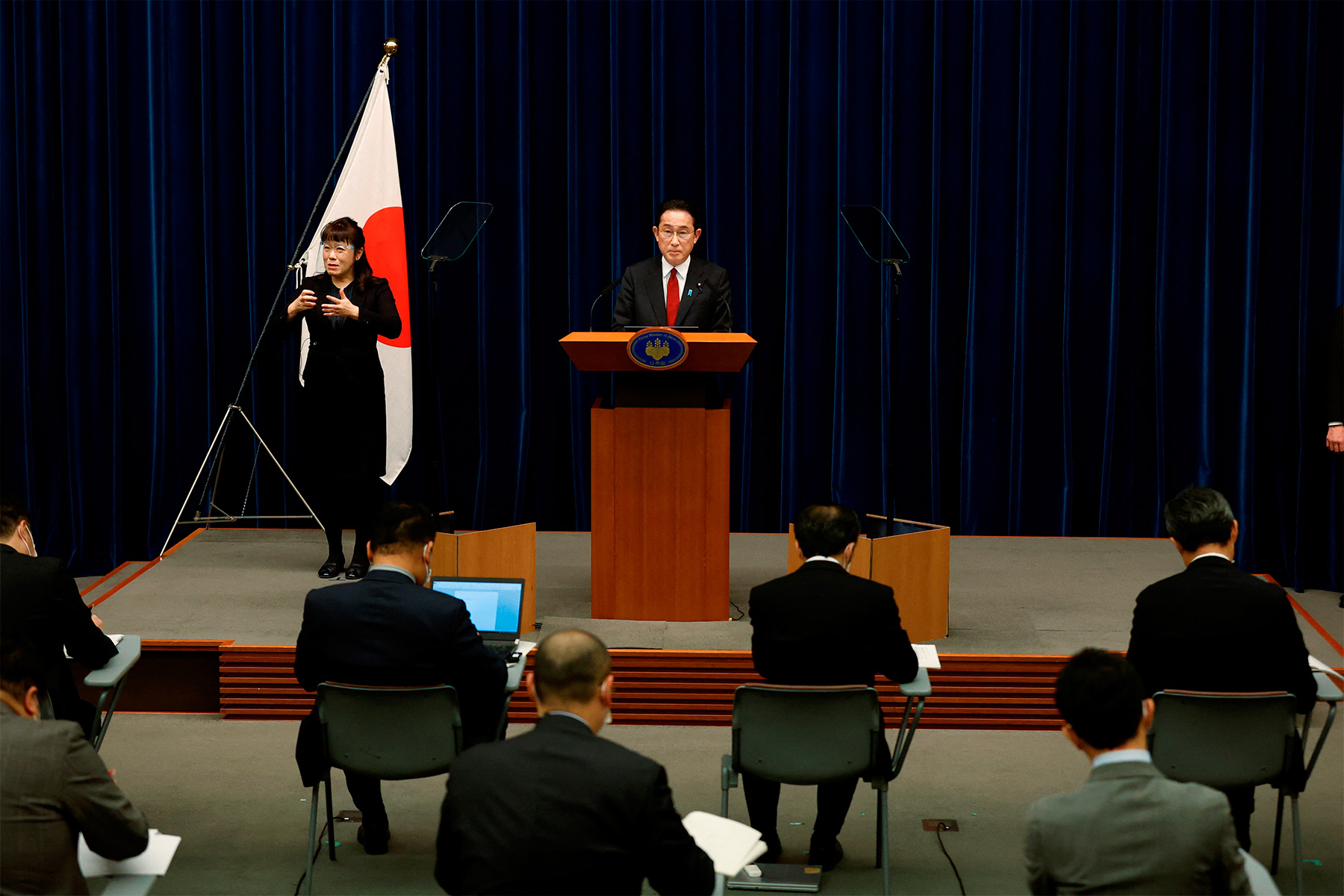As the ideological schism in today’s world deepens, the leaders of the liberal camp are ramping up their activities in the regions they have not paid much attention to before. The main purpose of the military, diplomatic, and economic efforts of the Global West is to expand the sphere of influence, preventing their “non-democratic and revisionist” vis-à-vis, China and Russia, from building up their capabilities.
In March 2021, Great Britain announced a new vision of itself in today’s world. “Global Britain in a Competitive Age: The Integrated Review of Security, Defence, Development, and Foreign Policy” is London’s plan for action amid the global crisis and with a view to overcoming the unfavorable consequences of the structural changes in the global order. The tilt towards the Indo-Pacific is one of the central elements in the new strategy. Clearly, the tilt has appeared under the influence of the U.S. with its initiative of building a “free and open Indo-Pacific.”
Through its naval presence, London expects to enhance maritime security in the Indo-Pacific. The emphasis is also on preventing criminal activities on the sea under “The Regional Cooperation Agreement on Combating Piracy and Armed Robbery against Ships in Asia.” In September 2021, patrol vessels HMS Tamar and Spey traveled via the Panama Canal into the southern region of the Pacific Ocean on a five-year-long mission. Missions completed include delivering humanitarian aid to Tonga after a volcanic eruption and a tsunami as well as delivering vaccines to Pitcairn Island. There were also reports of detaining poachers in natural preserves and in protected areas. Patrol vessels, however, are not capable of carrying out battle missions since they do not carry missiles and have modest radio and electronic equipment.
So far, the UK has had little success in building productive relations with the regional states and in comprehending the interests of the Asian states. A 2022 survey showed that only 1.8% of the respondents from ASEAN nations mentioned the UK as a promising trade partner, while 3.4% noted London’s role in building a world order based on rules and in improving the international law system.
Britain’s popularity in the Indo-Pacific is not going to increase if the country continues to prioritize military issues. The English-American duo only confirms the apprehension harbored by the nations of the region about mounting tensions and the risk of an armed conflict. Britain criticizes states of Southeast Asia for their inability to resolve the crisis in Myanmar and for disputes in the South China Sea. Yet, Britain does not propose any steps to protect the interests of ASEAN states.
However, the West’s anti-China rhetoric and the idea of mounting NATO presence in the Indo-Pacific meet with a critical reception from most Asian states. Only Japan may be counted as its sole unequivocal supporter. Southeast Asian states, as well as India and South Korea, prefer to bilaterally handle their own differences with China, without abandoning their cooperation with Beijing. The region quite highly values Russia’s potential as an effective intermediary in solving territorial disagreements in the Himalayas and the South China Sea and in handling peace issues on the Korean Peninsula. So far, there have been no examples of the UK exerting positive influence on regional security in East and South Asia.
As the ideological schism in today’s world deepens, the leaders of the liberal camp are ramping up their activities in the regions they have not paid much attention to before. The main purpose of the military, diplomatic, and economic efforts of the Global West is to expand the sphere of influence, preventing their “non-democratic and revisionist” vis-à-vis, China and Russia, from building up their capabilities.
The Indo-Pacific, which provisionally includes all nations in the vast space stretching from the Horn of Africa to Oceania, has seen the fiercest and comprehensive confrontation. So far, the ideologists of the concept have failed to come up with any parameters that would congeal this space into a full-fledged region. Initially, in 2007, Tokyo believed the Indo-Pacific could be a window of opportunity to develop its infrastructure and guarantee the freedom of navigation. However, Washington picked up this term and reduced all the efforts solely to preserving its own global leadership.
The U.S. failure to implement its “pivot to Asia” and its lack of a clear alternative to the Belt and Road Initiative made Washington turn to its NATO allies for assistance. In 2018, France—a country that has overseas territories in the region—released its Indo-Pacific strategy. In 2020, Germany published its own principles of an Indo-Pacific policy, despite having been “pushed out” of Asia after World War I.
A Tilt to the East
In March 2021, Great Britain announced a new vision of itself in today’s world. “Global Britain in a Competitive Age: The Integrated Review of Security, Defence, Development, and Foreign Policy” is London’s plan for action amid the global crisis and with a view to overcoming the unfavorable consequences of the structural changes in the global order. The tilt towards the Indo-Pacific is one of the central elements in the new strategy. Clearly, the tilt has appeared under the influence of the U.S. with its initiative of building a “free and open Indo-Pacific.”
British analysts believe that the vast spaces of the Indian and Pacific Oceans will play the key role in building a new world order and in forging “open societies” in the “competitive age.” The region remains the origin of transnational threats common for many states, and these threats cannot be handled unilaterally. Probably, as in the times of the empire, only the leaders of the progressive humanity are capable of handling such issues, even though they catalyze most of them. The authors of the report believe that London’s approach to the Indo-Pacific must be holistic, claiming that Great Britain is ready to be a European partner with the broadest and most integrated presence.
“White Elephants” of the Southern Seas
Despite the holism proclaimed, a year into the launch of the strategy evidences London’s clear emphasis on military aspects of security. This time, the Royal Navy is to epitomize the true freedom and openness. In April 2018, the UK established a permanent naval base east of the Suez, in Bahrain, Britain’s first in more than 40 years. Plans involve ensuring the Royal Navy’s presence in the Indian and Pacific Oceans through six more “points”: scattering across Oman, Qatar, Kenya, Diego Garcia, Singapore, and Brunei.
In July 2021, Carrier Strike Group 21 (CSG 21 comprising aircraft carrier HMS Queen Elizabeth, destroyer HMS Defender, frigates HMS Richmond and HMS Kent, auxiliaries RFA Fort Victoria and RFA Tidespring, nuclear-powered submarine HMS Artful, destroyer USS The Sullivans, frigate HNLMS Evertsen) entered the Indian Ocean via the Suez Canal. Previously, the Royal Navy performed maneuvers in the East Atlantic, in the Mediterranean and Black Seas. In the course of the mission, HMS Defender entered Russian waters in the vicinity of Sevastopol during an allegedly “peaceful passage.” Subsequently, the group passed through the Bay of Bengal and the Strait of Malacca, heading on to the Pacific Ocean on a training mission for patrolling between Guam and Japan; the group also participated in drills with other navies and docked in foreign ports. The mission of the British part was 28 weeks long, making it the first protracted expedition of a British aircraft carrier in the recent history of the Royal Navy.
Drawing on the experience of CSG 21, the Admiralty announced its plans to permanently deploy a CSG on Freedom of Navigation Operations (FONOP) missions in the Indo-Pacific. With that goal in view, the Royal Navy plans under Defence Command Paper 2021 to form a littoral response group by 2023. A similar unit was already operating in the Baltic and in the North Atlantic in 2021—it included amphibious transport dock HMS Albion, auxiliary landing ship dock RFA Mounts Bay, and frigate HMS Lancaster. The group is expected to spend eight months in the Indo-Pacific operating out of the base in Oman. Its objectives include training for operations amid natural disasters and crises and joint exercises with the Navies of the regional nations. It is possible that a CSG led by Britain’s second aircraft carrier HMS Prince of Wales and augmented by other forces will later be deployed in Asia on a permanent basis. The Prince has already earned a reputation of an unlucky ship as she spent nearly all of 2020 being repaired after a series of accidents. Another two accidents in the Royal Navy involving short vertical landing F-35B fighters took place in 2020–2021.
Through its naval presence, London expects to enhance maritime security in the Indo-Pacific. The emphasis is also on preventing criminal activities on the sea under “The Regional Cooperation Agreement on Combating Piracy and Armed Robbery against Ships in Asia.” In September 2021, patrol vessels HMS Tamar and Spey traveled via the Panama Canal into the southern region of the Pacific Ocean on a five-year-long mission. Missions completed include delivering humanitarian aid to Tonga after a volcanic eruption and a tsunami as well as delivering vaccines to Pitcairn Island. There were also reports of detaining poachers in natural preserves and in protected areas. Patrol vessels, however, are not capable of carrying out battle missions since they do not carry missiles and have modest radio and electronic equipment.
Plans for boosting the Royal Navy’s capabilities in the Indo-Pacific envision deploying Inspiration-class forward-looking frigates, which are now designed for operations “east of Suez”, with the first frigate to be commissioned in 2025. Still, it is not yet clear where they will be based. Singapore was mentioned as a possible base—but, unwilling to provoke China, the nation may refuse to host British ships on a permanent basis. Brunei has the requisite capabilities, and it is already offering logistical support to the British, but the Chinese factor applies here as well. The Admiralty is debating the expediency of using the infrastructure of the U.S. forward-deployed Seventh Fleet in Japan, since it will damage the prestige of the British Navy in the region, making them less independent. Australia, the UK and the U.S. concluded a military-technical cooperation agreement (AUKUS), which opens up the possibility of using the bases on the “green continent.” However, even though Australia’s Prime Minister Morrison called upon U.S. and British submariners to act before Australia’s first own nuclear-powered vessel is commissioned (no earlier than 2035), London has not yet settled on a final decision.
White man’s burden (is no longer)
British foreign policy doctrines envision the U.S. as its most important strategic ally, while Russia is the most urgent threat. China, India and Japan are recognized as the three important powerhouses in the Indo-Pacific. The UK’s relations with each of the three, however, are viewed differently. Tokyo is seen as London’s closest strategic ally in Asia. New Delhi is more of a partner, while the option of cultivating relations with Beijing is virtually ruled out. “The Indo-Pacific Tilt” proclaimed by the Downing Street can be said to transpire fully within the vein of the U.S. foreign policy, and it misaligns with the real interests of the region’s leading states. The proclaimed “holistic” approach would appear to entail expanding diplomatic contacts, improving trade and economic cooperation, shaping a stable multilateral dialogue on key issues in security and development. Yet, all of these things have fallen by the wayside of the agenda pursued by the British leadership. There are bilateral formats in place such as the Malaysia–United Kingdom strategic dialogue or the Joint Economic and Trade Committee with Indonesia. Their effectiveness is low, though, especially if compared with similar efforts on the parts of China or India.
So far, the UK has had little success in building productive relations with the regional states and in comprehending the interests of the Asian states. A 2022 survey showed that only 1.8% of the respondents from ASEAN nations mentioned the UK as a promising trade partner, while 3.4% noted London’s role in building a world order based on rules and in improving the international law system.
Britain’s popularity in the Indo-Pacific is not going to increase if the country continues to prioritize military issues. The English-American duo only confirms the apprehension harbored by the nations of the region about mounting tensions and the risk of an armed conflict. Britain criticizes states of Southeast Asia for their inability to resolve the crisis in Myanmar and for disputes in the South China Sea. Yet, Britain does not propose any steps to protect the interests of ASEAN states.
The Lowy Institute believes that weak support for western values and a large number of states with authoritarian governance traditions is one of the risks Southeast Asia holds for the UK. This atmosphere is a breeding ground for nationalism based on anti-Western/anti-colonial rhetoric and it creates a favorable environment for bolstering China’s influence.
The Hollow Crown
The concept of a “free and open Indo-Pacific” assigns an important place to India as a regional counterbalance to China. At the same time, Washington and London cannot be said to have succeeded in using New Delhi to advance their own interests. In view of territorial disputes between India and China and considering a comprehensive rivalry between the Asian giants, the UK has clearly hoped for anti-Chinese support from its former “brightest jewel in the crown.”
May 2021 saw the signing of the UK–India agreement on enhancing trade partnership that was planned to develop into a free trade agreement and to help double the trade turnover by 2030. However, prospects are not too bright since India is interested in the Regional Comprehensive Economic Partnership (RCEP), while the UK is leaning toward acceding to the rival format, the Comprehensive and Progressive Agreement for Trans-Pacific Partnership (CPTPP).
Additionally, the level of military connections between the UK and India remains fairly low, mutual visits are rare, there are virtually no sales of weapons and equipment, and bilateral exercises are mostly token affairs. The main irritants in India–UK relations are the close ties between London and Islamabad, New Delhi’s protectionist attitude to national companies, different views of the Kashmir problem, British criticism of Narendra Modi’s domestic and national policies, and the bitter colonial legacy. London does not support New Delhi in its desire to become a permanent member of the UN Security Council. The Indian leadership has a very negative assessment of the opinion popular in the West that India is an “electoral autocracy” rather than the world’s largest democracy. The goals of “global Britain” largely boil down to acquiring unilateral privileges in trade and economic cooperation and to drawing India into the West’s comprehensive confrontation with China.
Boris Johnson visited India in April 2022 with a clear objective of convincing India’s leadership to steer a different—openly pro-Western—policy. Given that Narendra Modi’s government has proclaimed the Act East plan, Johnson’s intention appears slightly illogical. Nonetheless, it was openly suggested to New Delhi that it should reduce its dependency on Russian hydrocarbons and weapons. In exchange, the British Prime Minister promised a billion pounds in investment and 11,000 high-paying jobs for Indians in the UK. It should be noted that despite powerful political support from Washington, Johnson’s visit to India was fruitless. However, President of the European Commission Ursula von der Leyen visited India immediately afterwards, bringing another portion of “carrots” in the shape of a partnership agreement with the EU.
Indian researchers note that the incumbent Indian government will not tolerate being lecture. Therefore, Western leaders should not be too pushy and should not make unacceptable proposals—in particular, when it comes to isolating Russia. For instance, the Indian Oil Corporation purchased 3 million barrels of oil in Russia in March, saying that “India’s total purchase of oil from Russia in a month is probably less than what Europe does in an afternoon.” In 2016–2020, New Delhi imported USD 6.6 billion worth of Russian weapons and military equipment, and India does not intend to stop.
Who Deters the Deterrents?
What is most concerning is the UK’s attitude to today’s China that is officially considered an authoritarian state with a growing power that significantly influences the geopolitical balance of power in today’s world. The “Global Britain” review ranks China as the greatest state threat and as a “systemic challenge” to security, prosperity, and the values that the West deems fundamental. London’s approach entails competition and counteraction where necessary and cooperation where possible.
British experts claim that the Western alliance should develop an effective response to Beijing’s unacceptable domestic and foreign political steps. Britain should not limit itself to flag-waving—instead, it should try to ensure its permanent military presence and continuous diplomatic and economic action. Plans envisage using the Five Eyes for this purpose as well as the FPDA defense arrangements between the five states (the UK, Australia, New Zealand, Malaysia, Singapore).
It should be noted that British think tanks differ in their opinions on what London should do in Asia. For instance, Policy Exchange suggests developing connections with ASEAN as a partner in a dialogue in order to disseminate liberal values and cooperation models, as well as acceding to the CPTPP with a view to diminishing China’s influence in regional trade, and bolstering interactions within the FPDA. The Henry Jackson Society insists on a consistent deterrence of China and on curbing authoritarianism in the region.
However, the West’s anti-China rhetoric and the idea of mounting NATO presence in the Indo-Pacific meet with a critical reception from most Asian states. Only Japan may be counted as its sole unequivocal supporter. Southeast Asian states, as well as India and South Korea, prefer to bilaterally handle their own differences with China, without abandoning their cooperation with Beijing. The region quite highly values Russia’s potential as an effective intermediary in solving territorial disagreements in the Himalayas and the South China Sea and in handling peace issues on the Korean Peninsula. So far, there have been no examples of the UK exerting positive influence on regional security in East and South Asia.







